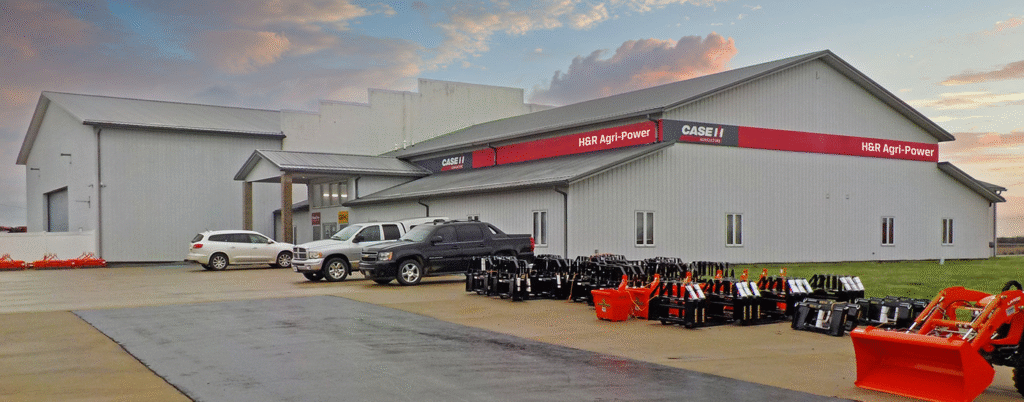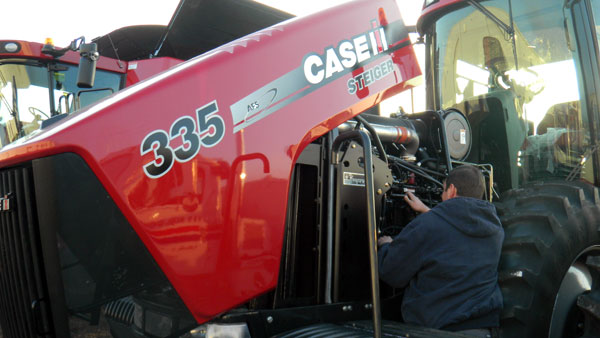When it comes to maintaining your Kubota Tractors in Milan, TN, ensuring longevity, efficiency, and smooth operation is paramount. Kubota tractors are known for their durability and reliability, but like any machinery, they require routine maintenance to perform at their best. Whether you use your tractor for agriculture, construction, or landscaping, following a structured maintenance schedule will help avoid costly repairs and maximize its lifespan.
At H&R Agri Power, we understand how important your Kubota tractor is to your daily operations. With proper care, your equipment will continue to serve you for years. This article provides an in-depth guide on how to maintain your Kubota tractor in Milan, TN, including essential maintenance tips, services, and key factors to consider.

Regular Maintenance for Kubota Tractors
Regular maintenance for Kubota tractors ensures optimal performance, longevity, and reduces the risk of costly repairs by addressing key components like the engine, transmission, and hydraulics.
Engine Care
The engine is the heart of your Kubota tractor. To keep it running smoothly, it’s important to check and change the engine oil regularly. Kubota recommends changing the oil every 100 hours of operation or at least once a year, whichever comes first. Be sure to use high-quality oil that meets Kubota’s specifications to ensure optimal performance.
Additionally, always check the oil level before starting the engine, especially if you’ve recently used the tractor. Low oil levels can lead to engine damage, so maintaining the right level is crucial. If you notice any leaks, it’s important to address them immediately to prevent engine damage and maintain efficiency.
Air Filter Maintenance
A clean air filter is essential for maintaining proper engine function. Kubota tractors are designed to work in a variety of environments, from dusty fields to damp areas, and a clogged air filter can significantly reduce engine performance. Depending on the environment in which you use your tractor, the air filter should be checked and cleaned every 50-100 hours of operation. If the filter is too dirty to clean, it should be replaced.
In environments with heavy dust, consider cleaning the filter more frequently. Replacing the filter every year, or as needed, ensures that your engine gets the clean air it needs to run efficiently.
Fuel System Care
The fuel system on your Kubota tractor plays a critical role in engine performance. To maintain fuel system health, be sure to replace the fuel filter every 200 hours or annually. Additionally, use clean, high-quality fuel to prevent clogging and ensure that your tractor runs smoothly.
After refueling, check for any leaks in the fuel lines or tank. A leaky fuel system can lead to both performance issues and safety concerns, so addressing any issues quickly is crucial.

Transmission and Hydraulics
Proper maintenance of the transmission and hydraulic systems in Kubota tractors, including fluid changes and filter checks, ensures smooth operation and prevents costly repairs.
Transmission Fluid and Filters
Proper transmission care is essential to ensure smooth operation and the longevity of your tractor’s drivetrain. Be sure to change the transmission fluid every 500 hours of operation or at least once a year. Always use the recommended fluid type as specified in your Kubota tractor’s owner manual to avoid issues with the transmission system.
Regularly inspect the transmission filters as well. These filters help keep the transmission fluid clean and prevent contaminants from entering the transmission system. Replacing these filters as part of routine maintenance can prevent expensive repairs down the line.
Hydraulic System Maintenance
Hydraulic systems on Kubota tractors are essential for powering various implements and attachments. To ensure the hydraulic system operates at peak performance, check the hydraulic fluid levels regularly. Hydraulic fluid should be changed every 1,000 hours of operation, or according to your specific model’s requirements.
It’s also important to inspect hydraulic hoses and lines for signs of wear and tear. A small leak in the hydraulic system can lead to a decrease in performance, so any damage should be addressed promptly.
Tires and Suspension
Maintaining proper tire pressure and inspecting the suspension system on your Kubota tractor ensures stability, traction, and a smoother ride on rough terrain.
Tire Pressure
Proper tire pressure is essential to maintaining your Kubota tractor’s traction, stability, and overall performance. Over or under-inflated tires can lead to uneven wear, decreased efficiency, and increased fuel consumption. Ensure that the tire pressure is within the specifications listed in the owner’s manual.
Inspect the tires for any signs of damage, such as cuts, punctures, or bulges. Regularly rotating your tires can help ensure even wear and prolong their lifespan.
Suspension Checks
The suspension system on your Kubota tractor absorbs shocks and vibrations while working on rough terrain. Over time, the suspension components can wear out, leading to a rougher ride and reduced control. Inspect the suspension regularly for signs of damage, such as leaks in the shock absorbers or worn-out bushings.
Battery Maintenance
A reliable battery is essential for starting your Kubota tractor and powering its electrical systems. To ensure your battery is in top condition, inspect it regularly for corrosion around the terminals and clean it using a solution of baking soda and water. Additionally, make sure the battery is properly charged and that the connections are tight.
If your tractor is not being used for an extended period, consider disconnecting the battery to prevent it from draining. For tractors that are used infrequently, a battery charger or maintainer can help keep the battery at the optimal charge level.
Cooling System
Regularly checking coolant levels, inspecting hoses, and cleaning the radiator in your Kubota tractor helps maintain optimal engine temperature and prevents overheating.
Radiator and Coolant Levels
Keeping the engine cool is essential for maintaining efficient operation. Regularly check the coolant levels in your Kubota tractor’s radiator, ensuring that the fluid is at the proper level. If the coolant level is low, add the appropriate coolant mixture recommended by Kubota.
The radiator should also be inspected for any signs of leaks or debris that could hinder airflow. Regular cleaning of the radiator fins can help ensure proper cooling efficiency.
Checking Hoses and Belts
Inspect all hoses and belts in the cooling system for cracks, wear, or leaks. These components can degrade over time, and a failure can lead to serious engine damage. Replace any damaged hoses or belts immediately to avoid costly repairs.

Conclusion
Maintaining your Kubota Tractors in Milan, TN, is essential for keeping your equipment running efficiently and extending its lifespan. By following a routine maintenance schedule, such as regularly checking fluid levels, changing filters, and inspecting key systems, you ensure that your tractor operates at peak performance year-round.
At H&R Agri Power, we are committed to helping you get the most out of your Kubota tractor. Regular maintenance not only ensures optimal functionality but also prevents unexpected breakdowns that could disrupt your work. Whether you need parts, advice, or professional service, we are here to support you in every aspect of tractor maintenance.
FAQs
How often should I change the oil in my Kubota tractor?
You should change the oil every 100 hours of operation or at least once a year, whichever comes first.
What is the best way to clean the air filter on my Kubota tractor?
Clean the air filter every 50-100 hours, depending on the operating environment. Use compressed air to blow out dust and debris or replace the filter if it’s too clogged to clean.
How often should I check the hydraulic fluid on my Kubota tractor?
Check the hydraulic fluid levels regularly, and change the fluid every 1,000 hours of operation or according to the manufacturer’s recommendations.
Can I use any coolant in my Kubota tractor?
No, always use the coolant type specified in your Kubota tractor’s manual to ensure optimal engine cooling and to avoid potential damage.
What should I do if my Kubota tractor is not starting?
First, check the battery and ensure it is charged and the terminals are clean. If the issue persists, inspect the fuel system, air filter, and ignition system for potential problems.
